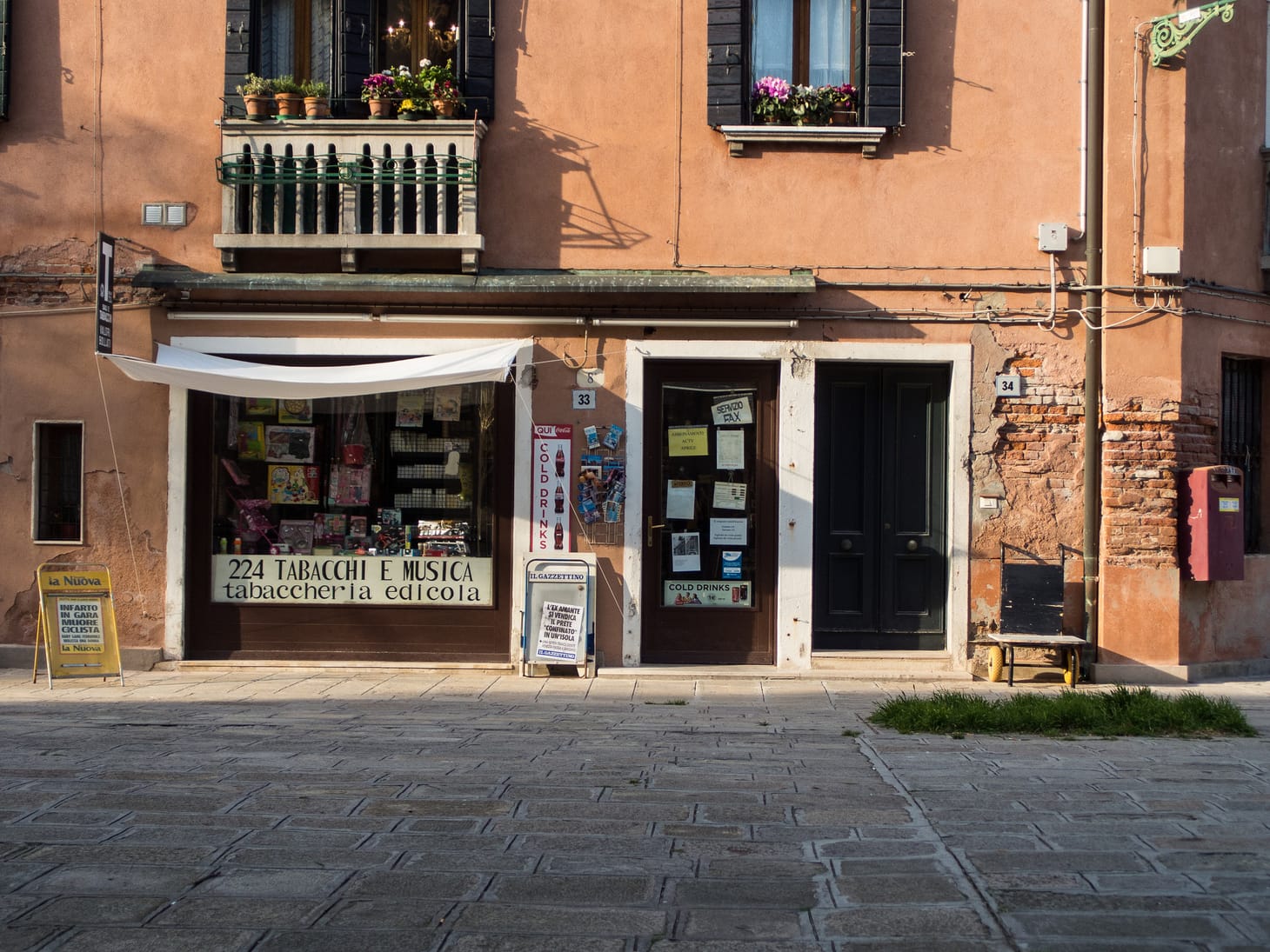Good news don't come in a live stream

Alain de Botton’s book “The News: A User’s Manual” is about journalism in general, not specific forms of distribution. But de Botton’s search for a new, constructive, meaningful, healthy journalism is a great analysis of the high-volume, high-frequency journalism we see in digital distribution today. De Botton’s “The News” can be read as a comment on the competition between digital journalism and platforms like Facebook or Twitter that also provide high-volume, high-frequency feeds of news that contain some material from journalism suppliers too. Is it a good idea for journalists to compete with this type of feeds? To sum de Botton up: No at all. It’s bad for the soul, the society and probably for journalism as an institution and a business (that’s my point, not de Botton’s).
What’s de Botton’s take on journalism?
If you’re a journalist cranking out headlines in the newsroom every day (or a consumer following the via alert on the smartphone) you have to read de Botton after some days away from work and news. Otherwise you won’t follow his line of thought at all. It’s too far out from where you are coming from. De Botton does simply not accept that summit meeting, murders, accidents, quarterly earnings reports or quotes from stars have any news value in themselves at all. You can argue that this is unworldly and so on but that would miss the point. If you want to enrich your thinking it helps to follow that line of thought.
So, if there is no objective news value in the stuff that happens, how does de Botton come to the conclusion that something is missing in the news? His criteria for good journalism are quite simple: We should foster journalism that make humans and society better. Yes, simple as that.
(Caveat: de Botton book has a rather narrative structure following observations and phenomena. It isn’t boiled down to seven one-liners with the main points or something like that. You collect your take-aways yourself like I did below. That is my way of reading de Botton, I gathered the quotes from all over the book. Read it yourself – it’s short and a pleasure to read thanks to de Botton’s style.)
What is good journalism?
Or rather: What effect do good news in de Botton’s sense have?
- They help their consumers becoming better humans.„In the face of all the distractions and confusions thrown at us, political news should elicit our interest in the complex mechanics of our societies, help us to agitate intelligently for their reform and accept certain obdurate limitations without fury. Political news should create a rounded, tolerable nation in the imagination of its audience, allowing for moments of pride and collective sympathy.“
- They foster positive emotions.
For example in celebrity journalism:„In this category, we would be introduced to some of the most admirable people of our era – as judged by mature and subtle criteria – and guided as to how we might draw inspiration and advice from them. The famous would make us envious in productive and measured ways, helping us to realize our own genuine but timid talents by the example of their audacity and perseverance. But we would also be reminded that the best cure for a longing for fame would ultimately be a world in which kindness and respect were more generously and evenly distributed.“
- They help build a better society.
For example the politics beat:„It should monitor not just those in power but all the systemic ills that hold back the community, while additionally recognizing its own momentous capacity to influence the values of the nation it comments on.“
Or business reporting done differently:
„Ideally, this genre would not only illuminate current economic developments but also investigate the many intelligent and workable theoretical approaches which could effect saner, more fulfilling versions of market capitalism, thereby quashing both our unnecessary cynicism and our immature rage. It would at the same time represent the activities of businesses in terms that stretched beyond the cold economic data required by investors.”
World news:
“It should, by appropriating some of the techniques of travel literature and by constant recourse to great photo journalism, help us to humanize the Other in our minds, shaking us out of our globalized provincialism.“
De Botton has some propositions on how to achieve this by doing journalism differently. For example:
- Explaining, drawing the big picture and telling coherent stories instead of chopping everything into a stream with many nuggets of information
„But the modern world is teaching us that there are dynamics far more insidious and cynical still than censorship in draining people of political will; these involve confusing, boring and distracting the majority away from politics by presenting events in such a disorganized, fractured and intermittent way that a majority of the audience is unable to hold on to the thread of the most important issues for any length of time.“ - Show the whole picture
„In any nation at any given point there is a welter of conflicting evidence about what is going on in the land. There will be several paedophiliac murderers at work, but there will also be tens of millions who don’t favour abusing and bludgeoning children to death. Some people will be drawn to murdering partners who have been unfaithful with a meat cleaver, but the majority will tearfully and angrily muddle along. 65 million people go to bed every night without murdering or hitting anyone. There are so many different versions of ‘reality’, it is impossible to speak of the nation as if it were a single thing that could daily be captured by the most determined news organizations. Herein rests an enormous and largely uncomprehended power: the power to assemble the picture that citizens end up having of one another; the power to dictate what our idea of ‘other people’ will be like; the power to invent a nation in our imaginations.“ - Try a different dramaturgy
„For example, it is often painfully hard to find an affordable and tolerably attractive neighbourhood to live in, but this doesn’t seem to be the ‘fault’ of anyone who could be sent to prison. Far too many jobs pay too little, lack interest and status and are overseen by unpleasant managers and bosses, but it would be hard to know how to frame such problems in the language of a news scandal.“
What has this to do with platforms like Facebook?
Looking at the function and the effects is a good way to analyze what newsfeeds and s called realtime journalism are about. De Botton isn’t doing that, this is my try from the view of a consumer: When you have a few so-called developing stories on a given day, that tell about an accident, a summit or a kidnapping in many small fragmented bits this has one main effect: It’s exciting. You have to stay tuned, a bit like with live sporting event and a little bit like with an ongoing tv show. Every news update gives you a new turn of the story, a different angle on a character figure or it introduced a completely new character in the ongoing drama.
If you look at this dramatization of news as a series of new episodes with some overreaching plot you suddenly see some truth in de Botton’s view. This dramaturgy is chosen by editors. It’s not preset. This stream of miniscule episodes of news has a gripping effect on some hardcore-users. They check the news on smartphones a dozen times an hour over the day just like facebook users do it with that other newsfeed. You stay tuned, because it is exciting (and because it’s important, it’s the news after all!).
But what other effect has this kind of storytelling in realtime journalism on the consumers? We do not know. We can ask how it affects ourselves of course. I am getting excited, confused and sad following the news newsfeed of different realtime journalism outlets on my smartphone. After four weeks of slow journalism with the Economist, the London Review of Books and articles on the web recommended daily be The Browser I am feeling better – and better informed too. This has no significance, it’s an experiment everyone can do for him- or herself and learn from it. But if you look in the forums on realtime journalism outlets you get the impression that many people there aren’t well. They sound angry, agitated, furious and quite mad sometimes. But that is not representative.
Back to platforms: Newsfeed outlets like Facebook are quite good in entertaining their audience and evoking their need to stay tuned in. These newsfeed outlets have a much bigger spectrum of sources. And that makes them more entertaining and gives you a better feeling as a consumer. They offer the cat videos, funny animations by great artists, really funny jokes by whoever on the planet just posted a great one. Realtime journalism is competing with these newsfeeds by cranking up the volume and the output. But this is competition of news newsfeed vs. newsfeed editors cannot win in this way in the long run. It boils down to high-volume, high-frequency output of exaggerations and sensationalism by every outlet competing on that front. Okay, you have intelligent entertainers like Buzzfeed. But still: platforms will be more entertaining, more exciting and so one because someone out there will be offering this. On the other hand: The good journalism de Botton is describing in The News, a journalism that is good for the soul and the society would be something unique, something a platform cannot offer.
Alain de Botton: The News: A User’s Manual
German version here.
Published unter CC BY-ND 3.0


